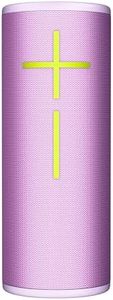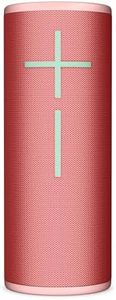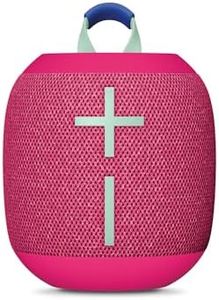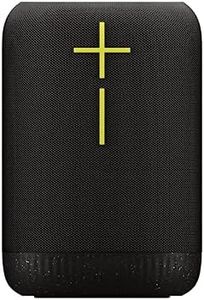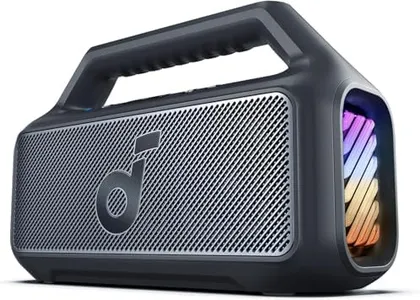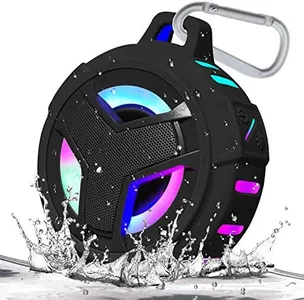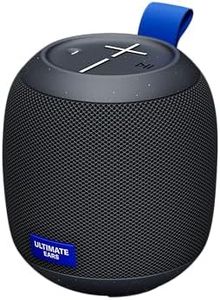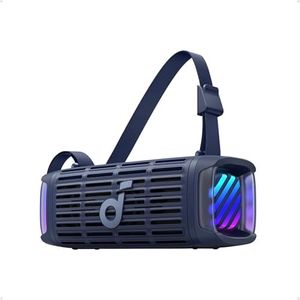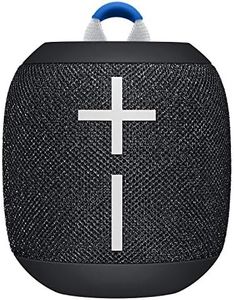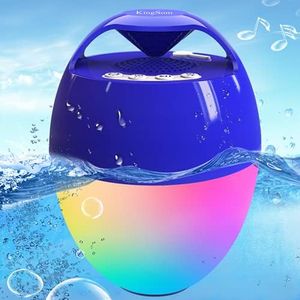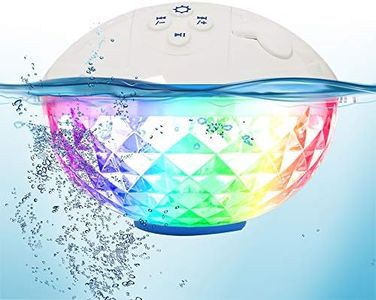We Use CookiesWe use cookies to enhance the security, performance,
functionality and for analytical and promotional activities. By continuing to browse this site you
are agreeing to our privacy policy
10 Best Floating Pool Speakers
From leading brands and best sellers available on the web.By clicking on a link to a third party's website, log data is shared with that third party.
Buying Guide for the Best Floating Pool Speakers
Choosing a floating pool speaker is all about finding a model that fits your entertainment needs by the pool or in the water. Start by thinking about where and how you’ll use it—will it be used mostly in a large pool during parties or quiet gatherings, or just for relaxing water time? Consider how portable you need it to be, who will use it, and what your typical listening environment is like. The right balance of sound quality, durability, water resistance, and battery life will help you get the best experience for your time in or near the pool.Waterproof RatingThe waterproof rating tells you how much water the speaker can handle without being damaged. Look for an IP rating—these start with 'IP' followed by two numbers. The first number refers to dust protection (less important for the pool), and the second number is for water. A rating of IPX7 means the speaker can be submerged in water up to one meter for 30 minutes, while IPX8 offers even more protection. For floating pool speakers, at least IPX7 is recommended to ensure the speaker survives accidental dunking and extended float time. If you want lasting durability, especially if kids will be grabbing or splashing the speaker, aim for higher ratings.
Battery LifeBattery life indicates how long the speaker can play on a full charge before needing more power. Poolside fun can last a few hours or all day, so this is important if you don't want your music to stop early. Typical battery lives are split into short (up to 5 hours), medium (5-10 hours), and long (10+ hours). For parties or day-long use, seek longer battery life, but if you use the speaker for short swims or occasional use, medium battery life may be enough. Remember that higher volumes and richer lighting features can drain the battery faster.
Sound Quality and VolumeSound quality and volume describe how clear, balanced, and loud the music will be. Floating pool speakers usually won’t sound as rich as larger home speakers, but there are differences. Some have basic sound good for background music (lower-end), others have louder output and better bass (mid-range), while a few offer almost room-filling sound (higher-end). If you want just gentle music or use in a small pool, basic sound is fine. For group gatherings or larger areas, look for speakers known for louder output and more balanced sound.
Bluetooth RangeBluetooth range is how far the speaker can be from your phone or music source before it loses connection. Pool speakers usually offer ranges like 10 meters (about 30 feet), with some reaching 20 meters (65 feet) or more. A longer range is useful if your phone stays far from the water or you want to walk around with your device. If your music source always stays near the pool, shorter range is enough; for larger pools or more freedom, a longer range is helpful.
Floating Stability and DesignHow well a speaker floats and its shape are important for use in the pool. Stable designs prevent the speaker from flipping over or sinking, and some have circular or flat shapes that help them remain steady. Look for models described as specifically 'designed to float' or with anti-tip design. If kids or guests will be active and often bump the speaker, stability becomes more important. For calm, adult-only pools, a less stable design may still work well.
Extra Features (e.g., Lights, Speakerphone, Pairing)Some floating speakers come with extra features like built-in colorful lights, hands-free calling, or the ability to pair multiple speakers for bigger sound. Lights can add a fun mood for night swims or parties, while speakerphone functions let you take calls without leaving the pool. Pairing lets you connect multiple units for stereo or bigger parties. Think about which extras will genuinely enhance your pool time—pick features you’ll actually use, rather than just the most flashy options.
